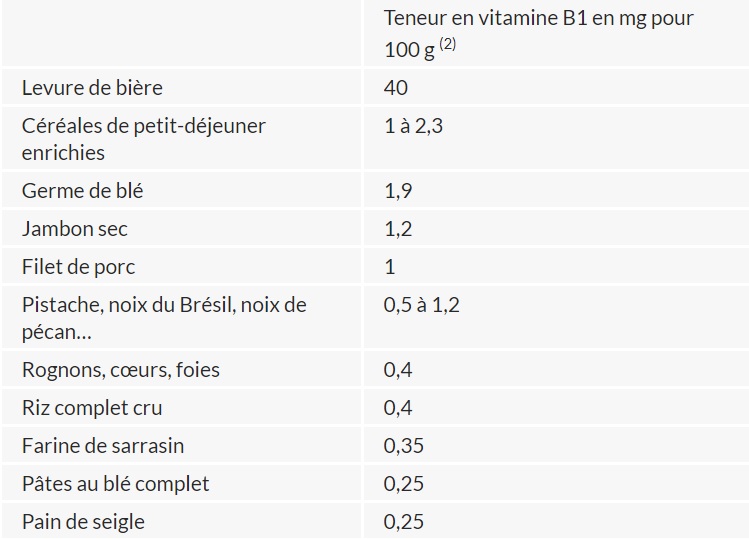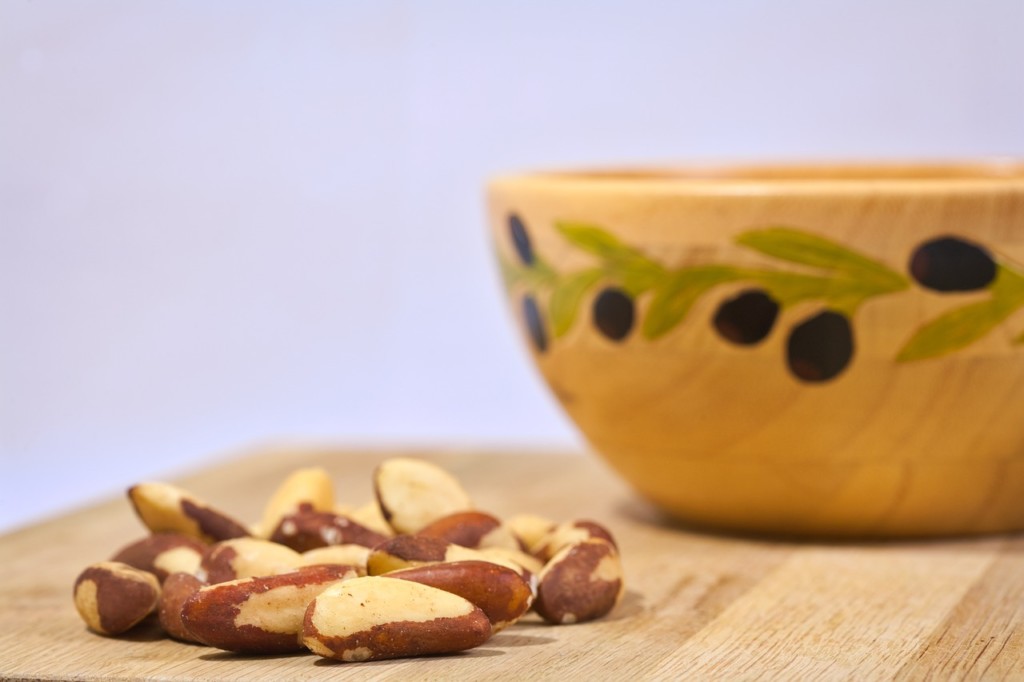Definition of vitamin B1
Visit vitamin B1 is a water-soluble vitaminwhich humans cannot synthesize. It is also called thiamine. It is supplied by the diet, and is converted in the liver into thiamine pyrophosphate (TPP), the active form of vitamin B1.
Role and benefits of vitamin B1
The best-known role of vitamin B1 is to energy production from carbohydratesand alcohol degradation. But this molecule has other advantages:
- Thiamine appears to be effective in countering the rise in "bad" cholesterol and triglycerides (diabetes).
- Thiamine slows down glycation, one of the driving forces behind human aging.
- It would also help prevent and treat lead poisoning.
- It improves survival in the face of AIDS.
- It improves heart failure.
- It regulates mood and improves access to memory, and generally helps the brain to function properly.
Foods rich in vitamin B1 / Thiamine
Almost all foods contain vitamin B1. Pork meat, nuts (walnuts, pistachios, etc.), peanuts, etc. offalWholegrain foods (as opposed to refined cereal products) are particularly rich in them.

Vitamin B1 and steaming
Just like the others vitamins water-soluble, thiamine escapes in cooking water, hence the importance of steamingand cooking food for only as long as necessary.
Recommended daily allowance of vitamin B1
According to official bodies, the recommended dosage of vitamin B1 after adolescence is between 1.2 and 1.5 mg/day. However, some avant-garde and alternative media recommend raising the dosage to 2.4 mg/day in adults. In fact, official health websites suggest that you increase recommended intake by 0.5 to 1.5 mg per day for athletes.
This content is part of the guide Blooness, the guide to the ideal human diet, the summary of which you can find here 🌱🥑

In any case, the difference will not be counter-productive or harmful to the body, and the organism is very good at eliminating an overdose through the urine.
Should I take vitamin B1 supplements?
A priori, you should not be subject to vitamin B1 deficiency. In fact, deficiency occurs in poor countries, where malnutrition and under-nutrition are rife. In industrialized countries, deficiency will only affect people who are undernourished or suffering from chronic alcoholism, as well as the elderly in whom assimilation may be poor.
French-speaking subscribers will receive the newsletter in French, and all others will receive an English version.

If you consume sufficient quantities of proteins offal and meat products vegetables seasoned or cooked, if you're not a heavy smoker or suffer from chronic alcoholism, you probably don't need supplements.
If this is not the case, we suggest you consult a doctor who will be able to tell you what vitamin B1 supplementation you should be taking.
Conclusion
Except in very specific cases, vitamin B1 is amply supplied by your diet. No need to worry about it.
Next chapter: vitamin B2.
Previous chapter: vitamin C.


One Response
Does B1 really help prevent mosquitoes from biting us? Is it a good way to prevent dengue fever?